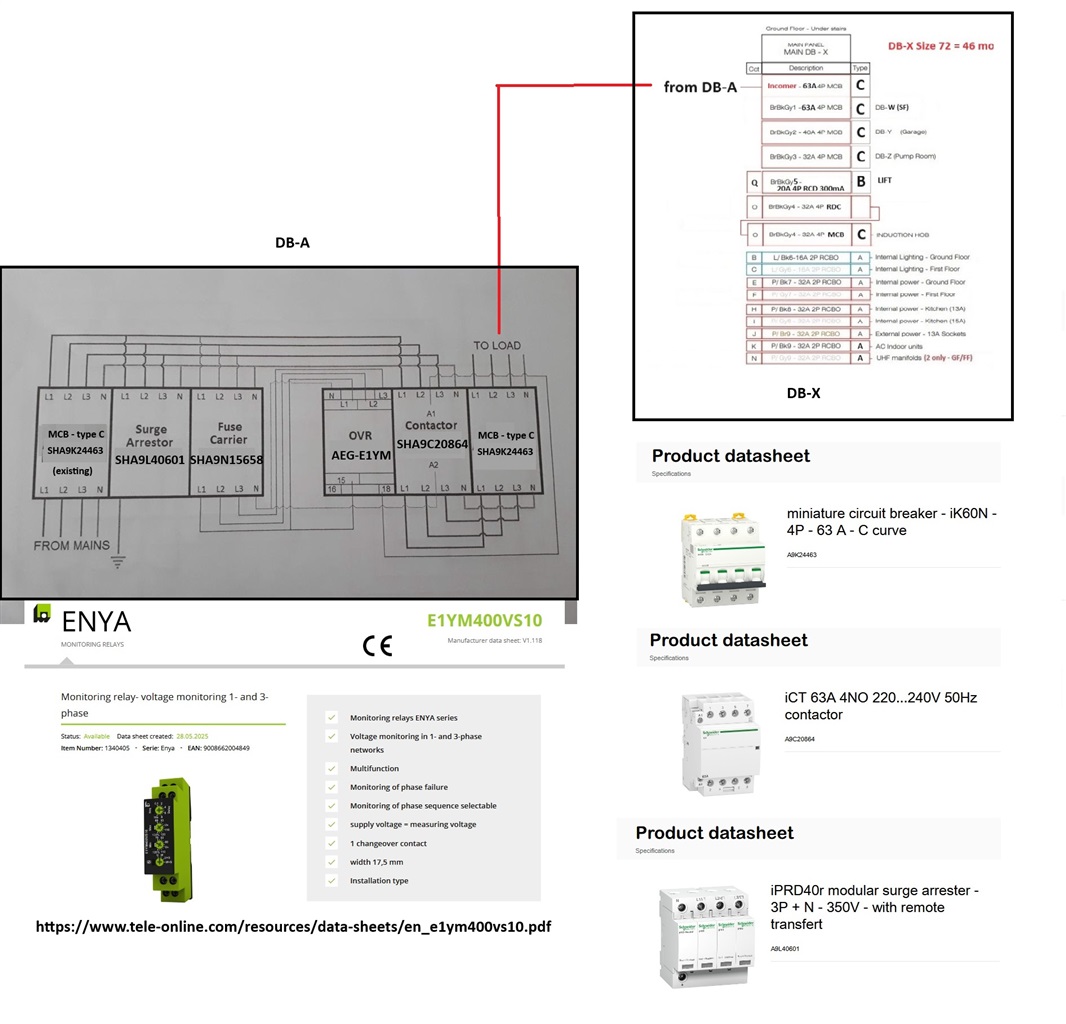I would appreciate some comment on the design of Overvoltage and Surge Protection for a house in Malta with 3 phase 63A supply (see below), particularly the need for a MCB in DB-A to protect the cable running to the MCB in DB-X. This seems like overkill. It was originally specified as a Type B RCD. What are your views? Any other comments are welcome.
Notes:
1. The cables to supply the house run along the facades of the houses in the street, so it seems sensible to protect against lightening strike or other - hence the surge suppressor
2. Overvoltage protection is needed as otherwise the house insurance is void. The concern relates to loss of neutral connection,
3. Malta follows IEE Wiring Regulations, but has some local variations

